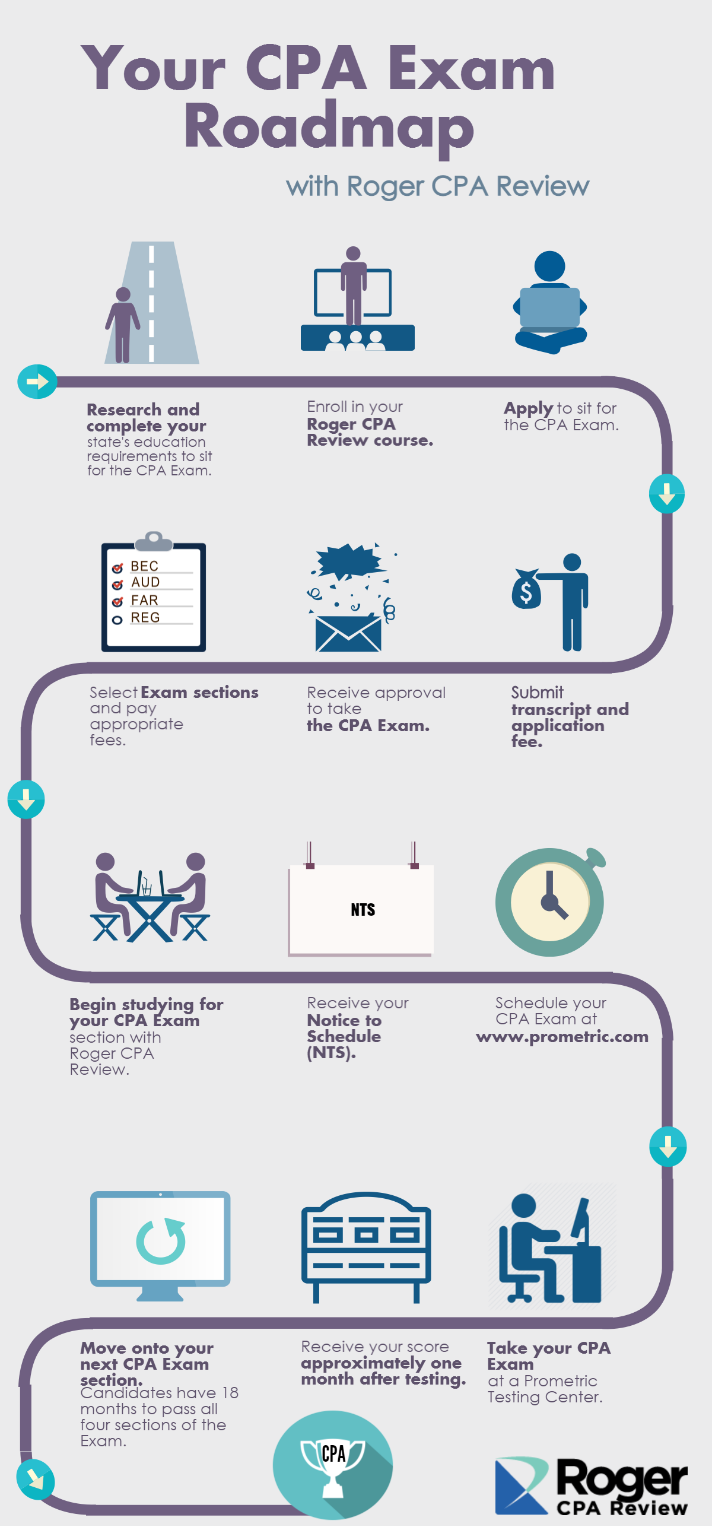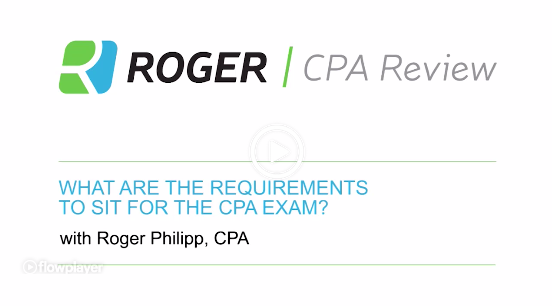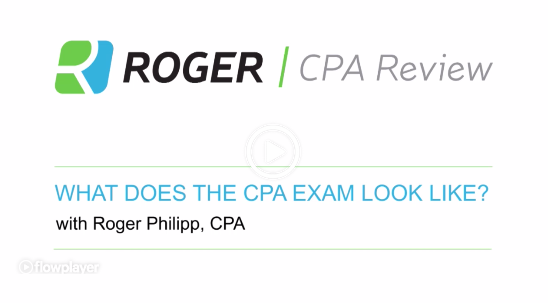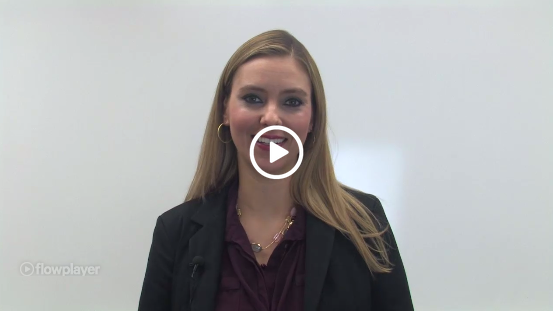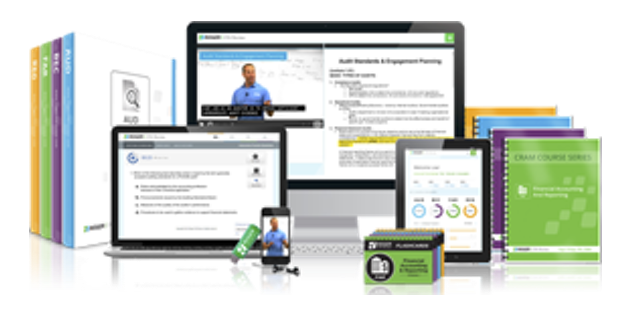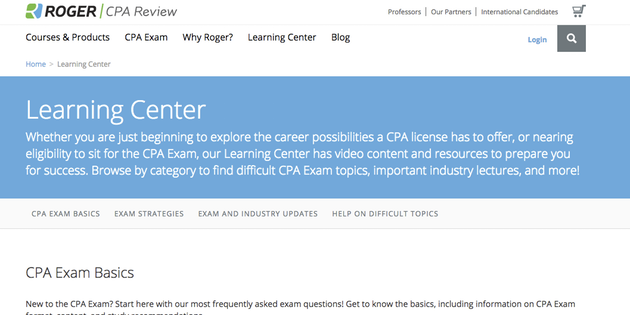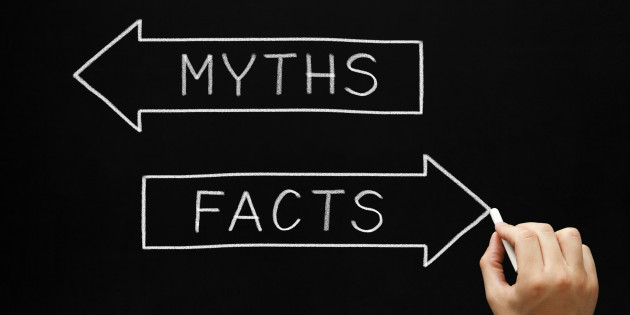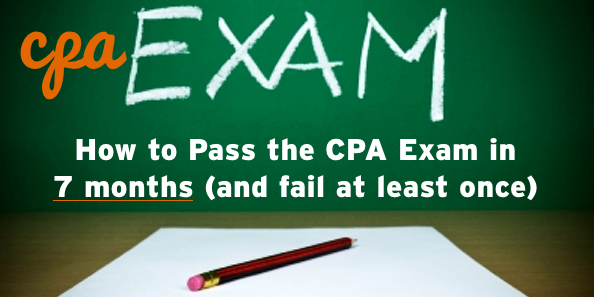
 Get Started on Your Path to Becoming a CPA!
Get Started on Your Path to Becoming a CPA!
The CPA license is the premier certification in the accounting industry.
If you are an accountant and decide not to get a CPA license, it's like becoming a lawyer without passing the bar exam.
It does not make sense!
You are not only more likely to be selected for a job, you'll make much, much more money in the long run. Hundreds of thousands more!
While the CPA exam is an important stepping stone in your career, it's not an easy one.
There are TONs on onerous requirements, and to make things harder, they vary by state.
You have to pass a grueling 4-part exam over an 18-month window, and most people have to complete an ethics exam and at least 1 year of professional experience before you can actually call yourself a CPA.
Literally half of the challenge of becoming a CPA is just finding out how to apply and what the requirements are.
If you can actually get to the point of sitting for the exam, with the right review course, it really won't be that challenging!
I absolutely love this infographic from Roger CPA Review. It perfectly details the long and challenging path to becoming a CPA.
Once I got all my ducks in a row and actually sat down to study for the exam, it became kind of fun. Many people actually learn more studying for the CPA exam than they do in University.
As you move through this page, I'll be walking you through:


If you have any questions about the CPA exam process, which review course to purchase, or how long you should be studying, email me at andrew@thebeancounter.com and I will personally help you or point you in the right direction!
Andrew Argue
The Bean Counter
I've also enlisted Roger Philipp and a few other CPA exam experts from Roger CPA review to help get you the information you need to know.
Let's get started!
Video: "What are the requirements to sit for the CPA Exam?" by Roger CPA Review
When I took the CPA exam, I was surprised to learn there were different requirements for every state!
The actual CPA exam and questions are the same, but education and work requirements vary greatly.
In fact, I live in Florida but chose to take the CPA exam in Alaska.

No, I didn't actually travel there.
I just registered through Alaska and still sat for the actual examinations in Florida.
Why?
I could take it 6 months earlier based on the classes I had taken.
Once I passed all four sections, I transferred my scores to Florida for $25.
Make sure you spend time learning the requirements to sit for the exam, and be licensed as a CPA. In order to become a CPA, you need to:
- Take a specific number of educational credit hours which varies by state
- Take specific accounting courses before being able to sit for the exam and a specific set of courses to become licensed
- In some states you may be required to complete an ethics examination
- The experience requirements are different by state and can change whether you're in public or private accounting
So overwhelming right? It was for me. The good news is that all the steps are now laid out for you by state at the links below:
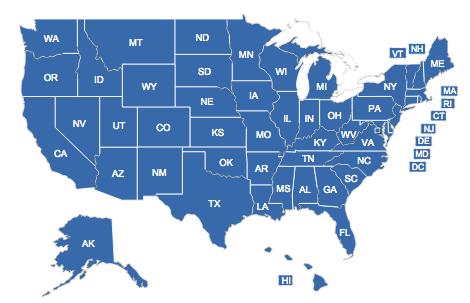
Video: "What Does the Exam Look Like" by Roger CPA Review
There are four sections to the CPA Exam:
- Auditing & Attestation (AUD)
- Regulation (REG)
- Business Environment & Concepts (BEC)
- Financial Accounting & Reporting (FAR)
Each of the sections has a slight difference structure and length as you see below:
One of the questions I receive all the time is:
What section should I take first?
Well that depends on your situation. I usually tell people to take FAR first as it's the longest section. It's good to get that out of the way to ensure you complete all four sections in the 18 month required window.
However, if you are the type of person that knows you need a confidence booster, take the section you think will be the easiest for you first.
To learn more about the CPA exam structure and content, visit the Roger CPA review learning center.
Video: "The 7 Not-So-Obvious CPA Exam Tips" by Roger CPA Review
Studying for the CPA exam can be tricky.
Everyone has different methods of learning and you need to find what works for YOU.
That being said, here are some basic thoughts:
Online vs. Live Classes
I spent one Saturday at in-person classes and it was terrible. It started at 8am and went to 5pm with a 30-minute lunch break.
I went back and looked at the online lectures for the sections we covered and I realized that if I would have taken the online lectures, I could have been done by 2:30pm. The in-person instructor got off track and was constantly on tangents. And all the other students asked question on topics I knew in and out.
I vote online, always. And I took every lecture for every exam and read every textbook, all from home, Starbucks, and Panera.
Multiple choice practice questions
I took every single multiple-choice question I could, and many twice. You need to make sure you know why you got answers wrong, but there is also a benefit in memorizing questions and answers.
Many of the questions on the actual exam are similar if not exactly the same.
Practice Exams
I never, not once, had a passing score on a practice exam. Passing score for the CPA exam is 75 points and no joke, I never got that on any practice exam.
Yet I passed 3 out of 4 exams on the first try and here were my scores:
REG 85 | BEC 84 | FAR 81 | AUD 71, 91
Setting Study Hours
Even though I had a full-time job and class, I was determined to study.
Nights without class – study from 6-10pm
Nights with class – study from 9-11pm
Weekends – study from 9am-8pm
I would also occasionally sneak in some multiple choice on lunch breaks at work and at slow points during class.
This was perhaps the most important piece of the puzzle, I was hard-core disciplined about this regimen. I stuck with it and almost never compromised.
Once you are setting your study schedule, here is a helpful article you should read:
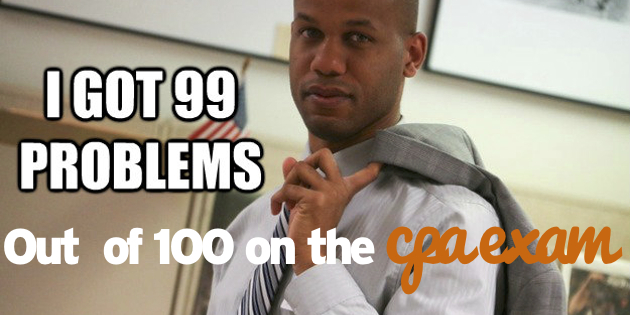
Setting The Exam Date
I always took the exam at 8am and I took most of my exams on a Monday. You can also wait until a few days before to schedule the exam as long as the Prometric centers in your area have many open dates. If there are only a few test centers, be sure to schedule in advance.
How did I react to failing?
The night I found out I failed audit I was surprised. It was the last of the four scores I received and I thought I passed with flying colors. In fact, I already went out celebrating. The audit exam only took me about 100 minutes. But I rushed it. I got a 71.
This is perhaps the biggest mistake people who fail make. If you’re close to a passing score, don’t spend weeks studying. DO NOT spend more than 3-5 days, and then re-take it.
I did and got a 91.
The story is that I probably bombed a simulation or got a string of multiple choice questions wrong. I just needed a new batch of questions and new simulations. I knew the material, I just needed another shot at the test.
My mentality
While my study regimen was perhaps the most important part of passing the exam, this is close second. I have never been a huge believer of any real value in exams. I see them for what they are, an attempt to measure ones ability to memorize concepts and answer questions. That’s it.
And I don’t want to wear a badge that says, “I’m a memorizing monkey”. It’s not something that cool to be good at memorization. But if you want to be a CPA, it’s necessary.
Memorize and pass you will pass. In the real world, most of the knowledge you learned while studying won’t be useful.
I see so many people judge themselves based on whether or not they pass, and they build up all this pressure. Don’t worry about it.
This test does not define you. And you’re certainly not defined by how many times you take it. Here’s a quote I heard back in the day and this pretty much sums up how I feel about the exam:
It’s just like a fraternity, in order to get in, they run you through a series of confusing steps and test you to the breaking point. Those that make it through are now in the club.
It’s just a silly hazing exercise. Not a life defining moment. Don’t let other people passing and posting on Facebook bother you. Don’t let you parents who keep asking you if you pass bother you. Don’t let your friends bother you about it.
All of those fears and doubt cloudy up your mind and prohibit you from achieving the objective. So here is my final advice, which I heard from the founding CFO of Apple Retail at the Institute of Management Accountant’s Student Leadership Conference in 2010:
KYFHD – Michael Kramer
(Keep your f*$#ing head down)
He said this noting that there are times in life when you need to buckle up, keep your head down, and work hard. The CPA exam is a pass/fail scenario, and you need to pass!
If you have any questions at all, email me at andrew@thebeancounter.com.
I look forward to helping you pass the CPA exam in any way I can!

